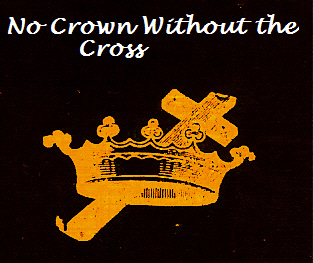
THE EMMAUS WALK PRESENTS:
"Heroes of America Series,"
--William Penn,"
Part III
From Foxe's Book of Martyrs



It is difficult to imagine worse atrocities than those that were committed against the utterly innocent George Penn by his fanatical religionist persecutors in the Roman Catholic Inquisition. The persecution went on for such a long time, that it ruined him utterly. Death would have been a mercy at any time, but they always stopped short of killing him outright, apparently, so that they might continue to inflict upon him incomprehensible suffering. Even the suffering of Jesus on the Cross--that only lasted a few hours (though the spiritual suffering inflicted on and endured by Christ was beyond anything known by George Penn or any other human being).
Being so close to him in the family, George Penn's agonies must have deeply impressed his nephew William and been the talk of the family for many years. Did it turn him into a hater of Catholics, and make him equally intollerant and cruel? Not at all. He became just the reverse of the Inquisition: which is consummate proof of the divine, unearthly nature of Christian love, which can overcome anything, however hateful and cruel, that comes against a genuine follower of Christ.
Rather than choose hatred and nurse plans of revenge, George Penn chose forgiveness, love, and peace if at all possible with all men, regardless of their beliefs or contrary ways of life.
William Penn was born in London, 1644. Because of his faith in Christ and his Quakerism he too underwent much persecution, and was even imprisoned in the Tower of London. There he wrote his best work, "No Cross, No Crown," in 1688, during his seven months' imprisonment. He was also imprisoned in Newgate and Fleet prisons. In 1696, making the acquaintance of Peter the Great in the shipyards of Deptford where the Czar of Russia was learning the trade of shipbuilding with on-the-job training, Penn vainly tried to convert the czar to Quakerism. Think of the radical change in history if he had succeeded! The English Crown owed Penn's father 16,000 pounds sterling, and William, his heir, received this in the form of a grant of land in Pennsylvania--a great colony taking and immortalizing the name of Penn in a founding federal state of what was to become the world's greatest nation.
This alone would have been the greatest achievement, to have a state named after him, but William Penn far exceeded this in gaining the admiration of men, both in his own time and forever after.
What were these special achievements? They had to do with his faith and Quakerism, which had been fundamentally strengthened by his own family and the examples of his forebears (such as George Penn), and the suffering they had endured for the sake of the name of Christ. His qualities and character are clearly evident in his achievements. In peace he developed the colony, establishing twenty townships with their civil organizations, while conferring with nineteen tribes, cementing a peaceful accord with them through treaties he kept and did not break.
Besides this evidence of his peaceful government of the colony, he was a champion of the black or Negro slave, and pioneered their emancipation. Under his legislature it was resolved that the buying and selling of slaves was contrary to the Gospel of Christ--which was a completely different course from that taken by the southern slave colonies where legislatures countenanced that evil. He opened churches as places of worship to slaves, and tried various ways of improving their condition and give them moral instruction. He died 1718, and his legacy was not only the great State of Pennsylvania, but in large measure, the Constitution that the leaders of Pennsylvania largely brought about to form the United States of America. Just as great (perhaps even greater) were his achievements of peace--peace with his fellow man (Philadelphia means "City of Brotherly Love), peace with the Indians, and peace with the Black Race and slave.
It is difficult to imagine greater suffering than was inflicted on the Christian Penn family, and but it is even more difficult to imagine a greater legacy than William Penn bequeathed to not only America but the whole world.
Knowing how great, in part at least, this legacy is, we as Christians and heirs in America are all the more responsible to maintain and share this golden legacy in our own times, now when it is so badly needed by millions of the oppressed and persecuted people in nations all around the world--people who have done nothing to deserve the conditions they are suffering, people oppressed by tyranny and poverty and class lines, and persecuted by bigotries and prejudices and anti-Christian forces of all kinds.
William Penn's response to evil? Not to become bitter and vengeful, but to do good wherever possible! That is precisely what he did, his entire life. How can we do otherwise, knowing this great and wonderful man of God and true humanity existed as one of the first Founders of the new American civilization?

The Emmaus Walk Bible School Home Page

Format: (c) 2006, Butterfly Productions, All Rights Reserved


